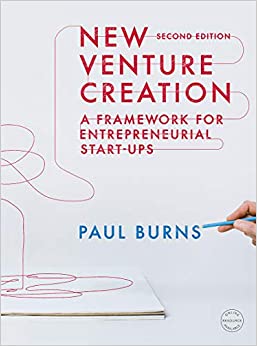Question
11. What annual interest must you earn to have $300,000 in 20 years if you currently have $50,000?* A) 5.37% B) 6.37% C) 9.37% D)
11. What annual interest must you earn to have $300,000 in 20 years if you currently have $50,000?*
A) 5.37%
B) 6.37%
C) 9.37%
D) 10.37%
None of the above
12. After graduation, you plan to work for Aspen Industries for 8 years and then start your own business. You expect to save and deposit $5,000 a year for the first 4 years and $10,000 annually for the following 4 years. The first deposit will be made a year from today. In addition, your grandfather just gave you a $32,000 graduation gift which you will deposit immediately. If the account earns 8% compounded annually, how much will you have when you start your business 8 years from now?*
A) $47,000
B) $42,000
C) $15,000
D) 134,943
None of the above
13. You want to buy a new sports car 3 years from now, and you plan to save $4,200 per year, beginning one year from today. You will deposit your savings in an account that pays 5.2% interest. How much will you have just after you make the 3rd deposit, 3 years from now?*
A) $11,973
B) $12,603
C) $13,267
D) $13,930
None of the above
14. You are considering borrowing $10,000 for 3 years at an annual interest rate of 6%. The loan agreement calls for 3 equal payments, to be paid at the end of each of the next3 years. (Payments include both principal and interest.). How much would the annual payment be?*
A) $2,674.
B) $2,890.
C) $3,741.
D) $4,020.
None of the above
15. You are given two choices of investments, Investment A and Investment B. Both investments have the same future cash flows. Investment A has a discount rate of 4%, and Investment B has a discount rate of 5%. Which of the following is true?*
A) The present value of cash flows in Investment A is higher than the present value of cash flows in Investment B.
B) The present value of cash flows in Investment A is lower than the present value of cash flows in Investment B.
C) The present value of cash flows in Investment A is equal to the present value of cash flows in Investment B.
D) No comparison can be madewe need to know the cash flows to calculate the present value.
None of the above
16. Jack has $375,000 and wants to retire. He expects to live for another 25 years, and he also expects to earn 7.5% on his invested funds. How much could he withdraw at the beginning of each of the next 25 years and end up with zero in the account?*
A) $28,243.21
B) $29,729.70
C) $31,294.42
D) $32,859.14
None of the above
17. You've just joined the investment banking firm of Dewey. They've offered you two different salary arrangements. The first one is that you can have $95,000 per year for the next two years, however, the second one is that you can have $70,000 per year for the next two years, along with a $45,000 signing bonus today. The bonus is paid immediately, and the salary is paid at the end of each year. If the interest rate is 10 percent, which do you prefer?*
A) The first option
B) The second option
C) Indifferent
D) Neither
None of the above
18. A company's 5 years bond are yielding 7.75% per year. Treasury bond with the same maturity are yielding 5.2% per year, and the real risk free rate (r*) is 2.3%. The average inflation premium is 2.5%; and the maturity risk premium is estimated to be 0.1 * (t - 1) %, where t = numbers of years to maturity. The liquidity premium is 1%. The default risk premium on the corporate bond is:*
A) 1.55%
B) 2.55%
C) 3.55%
D) 4.55%
None of the above
19. Glasgow Corporation's 5-year bonds yield 6.2% and 5-year T-bonds yield 4.4%. The real risk-free rate is r* = 2.5%, the inflation premium for 5-year bonds is IP = 1.50%, the default risk premium for Glasgow's bonds is DRP = 1.30% versus zero for T-bonds, and the maturity risk premium for all bonds is found with the formula MRP = (t - 1) 0.1%, where t = number of years to maturity. What is the liquidity premium (LP) on Glasgow's bonds?*
A) 0.36%
B) 0.41%
C) 0.45%
D) 0.50%
None of the above
20. A homeowner in a sunny climate has the opportunity to install a solar water heater in his home for a cost of $2900. After installation the solar water heater will produce a small amount of hot water every day, forever, and will require no maintenance. How much must the homeowner save on water heating costs every year if this is to be a sound investment? (The interest rate is 5% per year.)*
A) $145
B) $160
C) $175
D) $190
None of the above
Step by Step Solution
There are 3 Steps involved in it
Step: 1

Get Instant Access to Expert-Tailored Solutions
See step-by-step solutions with expert insights and AI powered tools for academic success
Step: 2

Step: 3

Ace Your Homework with AI
Get the answers you need in no time with our AI-driven, step-by-step assistance
Get Started


